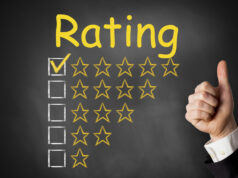In today’s changing and complex world, the safety and security of individuals and assets are of utmost importance. A vital component of maintaining security is effectively managing security personnel. By adopting key practices in this area, organisations can bolster their security measures and reduce potential risks. In this article, we will explore six key elements that contribute to successful security guard management.
Comprehensive Training Programs
A cornerstone of security guard management is the implementation of training programs. These programs should encompass a range of topics, including emergency response protocols, risk assessment strategies, access control procedures, and customer service techniques.
Companies can ensure that security guards are well-equipped to handle diverse situations competently by providing them with the knowledge and skills through training initiatives. Furthermore, continuous training sessions should be conducted to keep guards up to date on industry developments and best practices.
Meticulous Staff Selection and Recruitment
Dedicating time and resources to staff selection and recruitment processes is crucial for effective management of security guards. The recruitment procedure should include background screenings, which involve checking records and references.
Additionally, selecting individuals with relevant qualifications, such as certifications or prior experience in law enforcement or the military, can significantly enhance a security team’s performance. Essential attributes, such as practical communication skills, sound decision-making abilities, keen attention to detail, and problem-solving skills, should also be considered during the recruitment process.
Regular Oversight
Consistent supervision plays a crucial role in ensuring optimum performance from security personnel. Routine checks conducted by supervisors help identify any gaps or areas that need improvement, while ensuring compliance with established procedures. The security guard will not be responsible for IT security issues; this should be a relevant professional.
Supervisors should conduct assessments with guards to gauge their Wellbeing on site and offer feedback on their work. This approach fosters a sense of responsibility among guards while enhancing their capabilities and efficiency.
Streamlined Communication Procedures
Effective communication is crucial for the efficient functioning of any security guard management system. Implementing communication protocols ensures that guards can effectively convey information and promptly respond to incidents or emergencies.
Leveraging tools such as two-way radios, mobile applications, or dedicated alarm systems facilitates real-time communication between guards and the central command centre. Effective coordination within the security team relies on communication channels, prompt responses to incidents, and a smooth information flow. Incident reporting and documentation play an equally crucial role in managing security guards.
Incident Reporting and Documentation
It is essential to document every incident, regardless of its scale, to ensure proper actions are taken, risks are identified, and preventive measures are implemented. Using a reporting framework helps capture details such as date, time, location, descriptions of the involved parties’ information, witness statements (if available), and any supporting evidence, including CCTV footage or photos. This detailed documentation not only assists in security matters but also offers valuable insights for future risk assessments.
Continuous Evaluation and Improvement
Continuous assessment and improvement are aspects of enhancing security guard management practices over time. Regular evaluations help identify areas for improvement by analysing incident reports or conducting performance assessments for guards or the entire team. Through evaluations, strengths can be reinforced while weaknesses or gaps can be addressed promptly. Feedback from guards can also highlight areas where additional training could be beneficial.
Conclusion
In essence, effective management of security guards is crucial for safeguarding both people and assets. By implementing practices such as training programs, careful staff selection, consistent supervision, clear communication channels, detailed incident reporting, and ongoing assessment for improvement, businesses can enhance their security measures and mitigate potential risks.
Thorough training equips security guards with the skills to handle situations efficiently. Proper recruitment ensures that competent individuals are chosen for the role. Regular supervision promotes accountability and continual progress. Effective communication methods facilitate quick responses to incidents or emergencies. Incident reports provide valuable insights for risk evaluation and informed prevention strategies. Ongoing assessments help pinpoint areas that need improvement.








